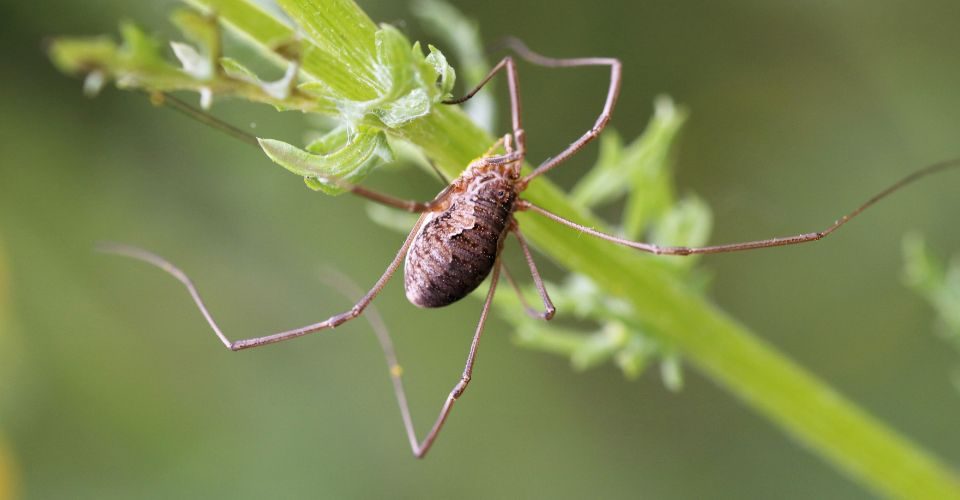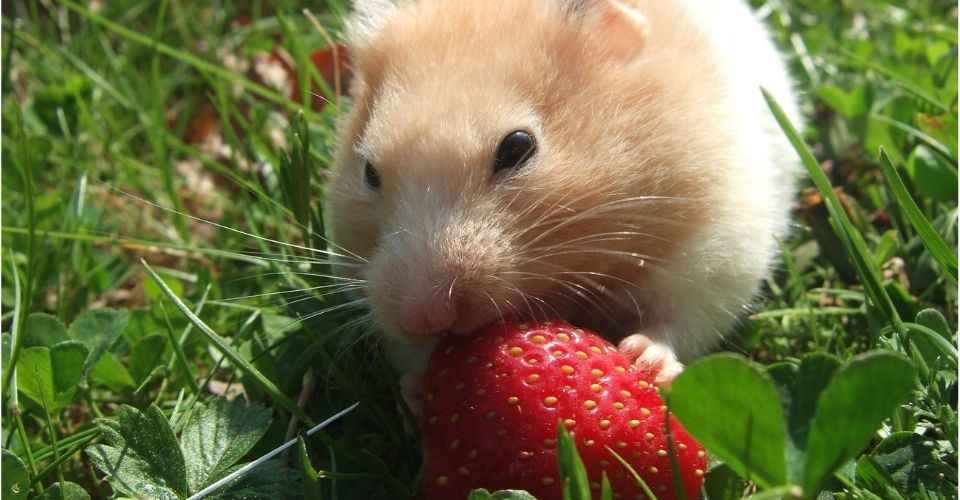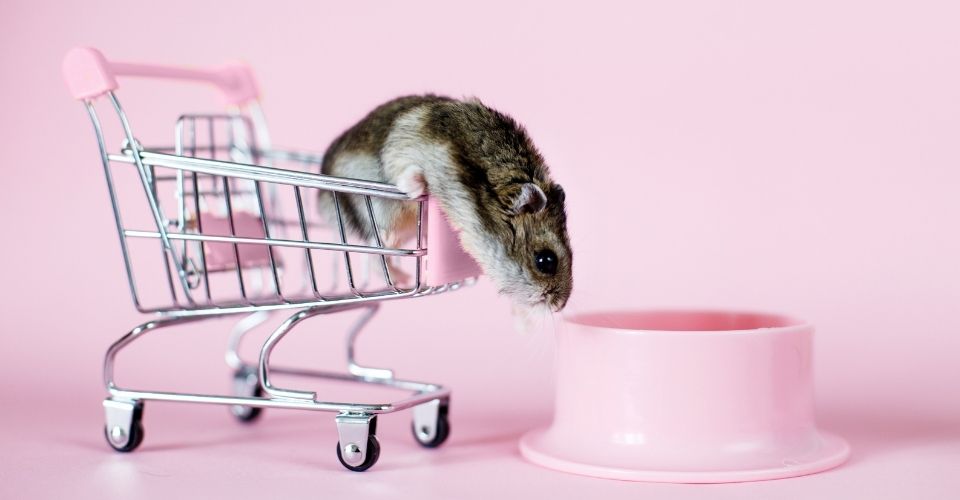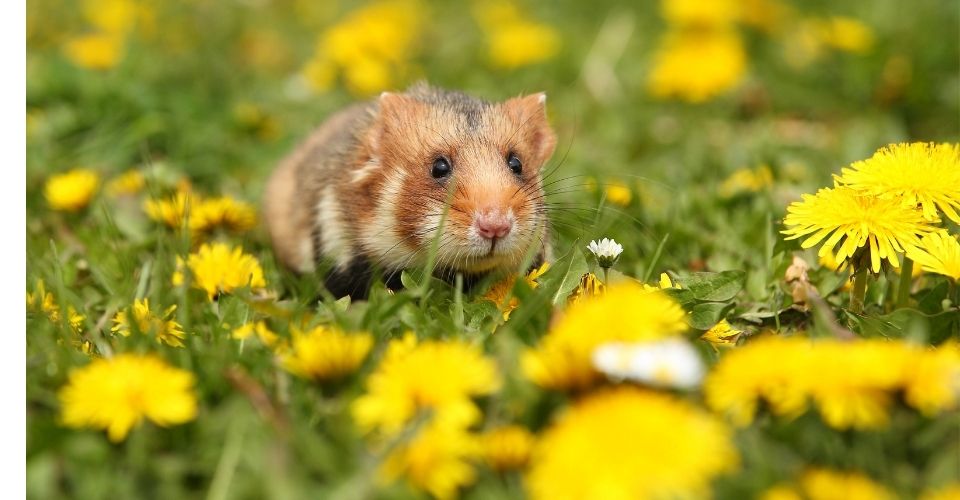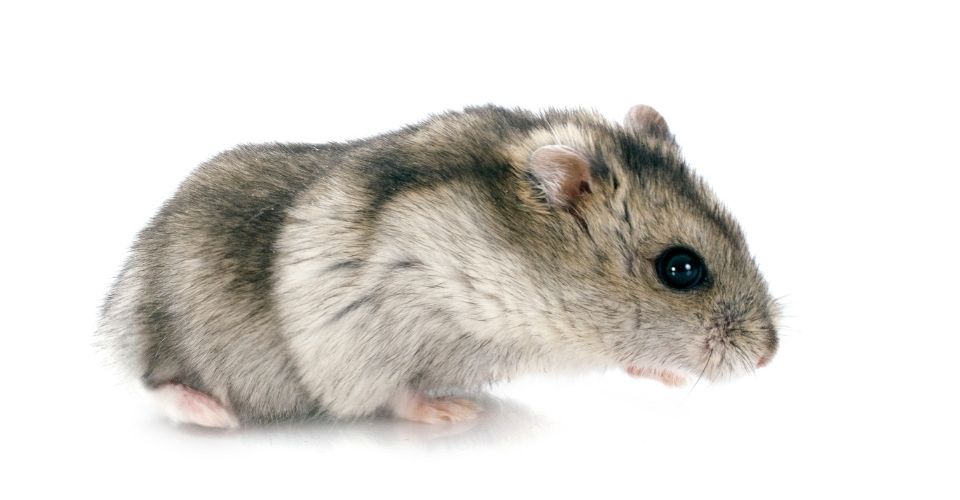Being omnivores, hamsters eat plants such as spinach, fruits such as bananas, and several types of insects. But hamster owners need to be careful of what they feed their little guy – particularly in terms of insects.
So, are spiders safe for hamsters? Can hamsters eat spiders?
Well, it is a bit complicated.
Can Hamsters Eat Spiders?
Yes—and no. Though hamsters can eat spiders, they should not, especially in large amounts. In simple words, hamsters may ingest spiders with little or no benefits, but there is a high probability that they might end up jeopardizing their well-being.
Kind of a contradiction, right? Let us explain.
Why Should Hamsters Not Eat Spiders?
Though hamsters are known to feed on insects, both dead and alive, spiders, in particular, can be problematic for them if consumed or even tried to consume.
Here is why:
Spiders Bite
Spiders bite whenever they feel threatened, and hamsters are no exception to their list of potential dangers owing to their relative size.
However, smaller spiders are less likely to bite, but the larger ones pose a significant threat because their fangs are big and powerful and can easily penetrate the outer skin layer. Resultantly, the hamster might suffer immense pain that would be far more if he is bitten at sensitive body parts.
Similarly, if he pouches the spider (hamsters love to pouch their food), he could risk being constantly bitten and suffering overwhelming pain. Since pouches are hidden until examined specifically, you might not be able to notice what is wrong.
Moreover, when in pain, hamsters feel weak and try to hide from potential predators. Hence, you might have a hard time spotting your furry friend in his den.
Some Spiders Are Poisonous
Though spiders normally found in homes are not poisonous, those found in the wild can be. Furthermore, if your home is near the area where poisonous spiders live, you might find some of them crawling into your premises, and the chances of them reaching your hamster pal could increase. If your pet eats any of the poisonous spiders, it can suffer serious illness and, in extreme cases, even die.
Likewise, though in small quantities, some spiders are venomous (they inject the venom when they bite). If such a daddy with long legs manages to sink its teeth into your hamster, the hamster could die.
Spiders Scare
Hamsters are great hunters and can scare spiders, but the other way around is also possible: the large chelicerae, abdomen, and legs can trigger fear and disgust in hamsters. Moreover, spiders and hamsters may live together in harmony, but a scared hamster can have significant mental stress levels that are not good for his overall well-being.
Nevertheless, note that being scared does not kill hamsters. Besides, every hamster has a different personality, and not all react the same way. Even if a hamster is fearful of the spider nearby, it should be fine after the spider is removed.
What Are the Benefits of Hamsters Eating Spiders?
Some hamsters, especially Teddy Bear hamsters, tend to attack, kill, and eat the spiders in the wild. If nature makes them do so, it is highly unlikely that there could be no beneficial outcome of it.
Protein
Hamsters need animal protein not just to survive but to live a healthy life as well, and insects make a good source of it. Hence, spiders can cater to the need for animal protein in your hamster.
However, you must be cautious of your hammie overeating protein as it may lead to kidney damage, various health complications, and even obesity.
Insect-Free Zone
Depending on the hamster and the type of spiders nearby, if your pet keeps consuming big-legged monsters now and then without any health complications, it is good for your home – it will be free of these scary insects.
Every time you hammie chews on one, you will be making the environment cleaner than before.
It is a favorable deal: what do you choose? A home where spiders roam freely, or a useful pet which gradually decreases their count and brings it to naught?
But truth be told, this is not actually a benefit for hamsters but for you. If you are pestered by spiders, it is better to apply a spider-repellent spray in your facility than to let your hamsters munch on them.
How to Avoid Hamster Eating Spiders?
Due to the risks hamsters eating spiders entails, most hamster lovers choose their pets not to ingest any of these.
The tips that work are:
Remove the Webs
Spiders might crawl into your hamster’s den, but if the cobweb is nearby, it would be easy for them to hang into the den regularly, gaining the attention of your hamsters. Similarly, cobwebs can increase the chance of your pet consuming spiders because its den could be in the path of the spider that it regularly treads. If the spider reproduces, you can find much more cobwebs in the same place within the span of only a few months.
Get a Safe Cage
Put your hamster into a home that is less likely to be infiltrated by spiders. For instance, if the cage is of a full plastic body, it would be next to impossible for spiders and other insects to get into it. On the other hand, those with open spaces do not guarantee security from crawling animals.
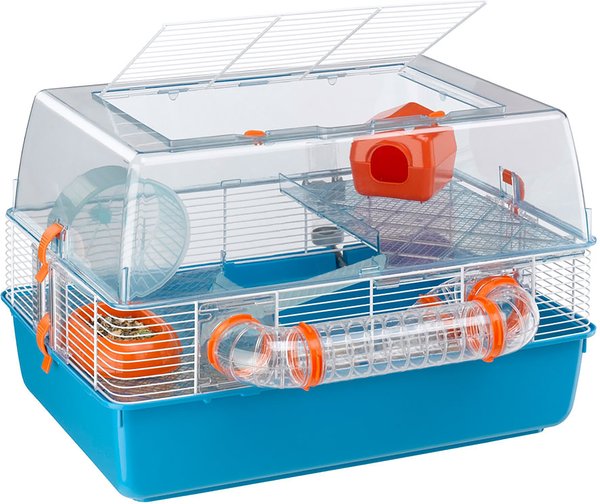
|
Ferplast Duna Fun Multi-Tier Hamster Cage is a safe and interactive den for your little pal. It has a lot of fun features – your pet will surely enjoy its stay! |
Anti-Spider Products
You can use both natural and manufactured products to keep spiders away from the den of your hamster. As a natural remedy, sprinkle citrus juices such as lemon and orange around the cage. Besides, using tea tree oil, peppermint, eucalyptus, and vinegar can also help a lot.
Likewise, there are several spider and other insect-repellent products available in the market that can do the job effectively.
What to Do if Hamster Eats Spiders?
If your hamster, despite your utmost effort, has eaten spiders, you can resort to the following moves to ease the situation:
Feeding
If you are sure that your hamster has eaten a spider, try feeding it something else immediately to make it ingest the spider instead of keeping it in the pouch, which can be harmful if the spider bites. Feeding and serving water can help cope with the situation.
Removing Other Spiders
If you have more spiders around, make sure that your hamster does not consume any further. Either take it away or make the zone spider-free as soon as possible. If your hamster keeps eating more and more spiders, it can complicate the matter seriously.
Pro Assistance
Monitor your pet for some time after ingesting the spider. If it stays well, there is no requirement to visit a vet. However, if it does not, contact the vet immediately. Noticing the following symptoms indicates problems:
- Lethargy
- Loss of appetite
- Inflammation and swelling
Moreover, if you suspect that the spider is poisonous, do not even wait to monitor your hamster’s health and seek help without any delay.
What Are the Alternatives to Spiders for Hamsters?
Hamsters are fond of insects. You can feed any of those as long as they are not too big to cause choking, and you must ensure that they are not poisonous or venomous.
To make the best replacement for spiders, consider feeding your furry pal crickets, locust, and mealworms. They can be fed both live and dead.
Conclusion: Can Hamsters Eat Spiders?
Yes, hamsters can eat spiders, but because of the risks it may entail, they should not. If a hamster tries to consume a spider, it might bite, turn out to be poisonous, or even scare the hamster. On the positive side, spiders can be a good source of protein for our hammie pals.

